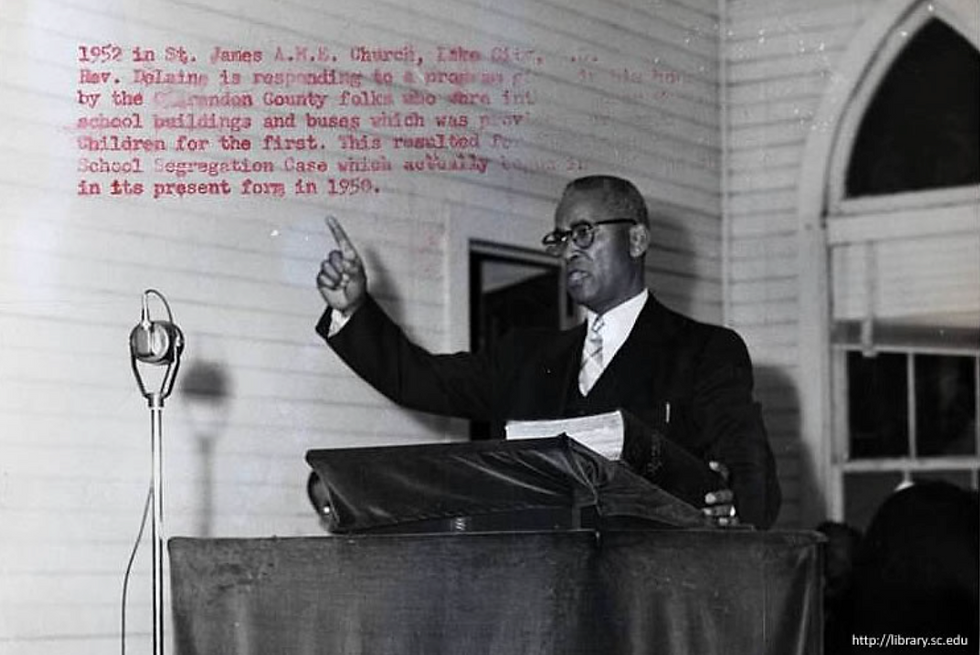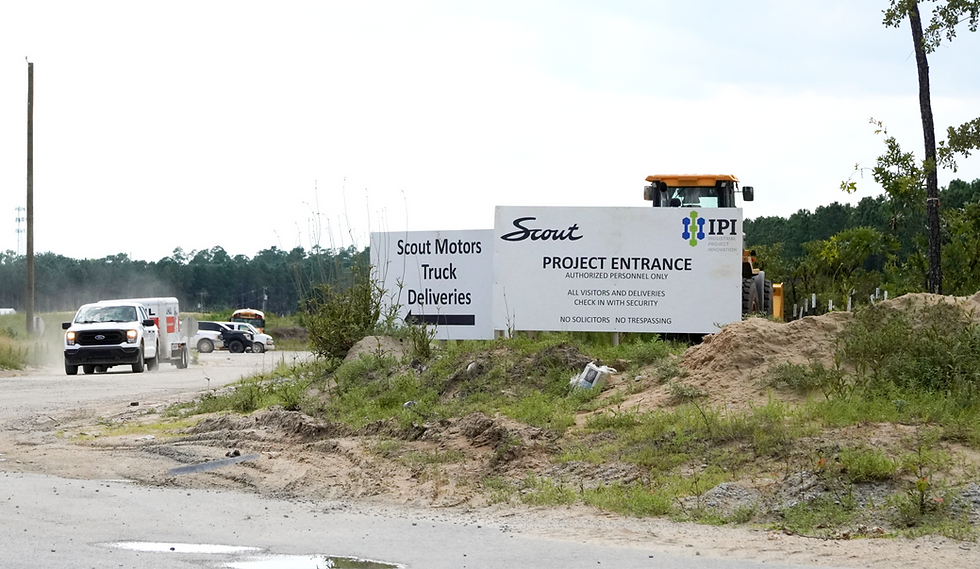Becoming Thurgood: America’s Social Architect — A Legacy Reimagined at Allen University
- CUBNSC

- Oct 15, 2025
- 4 min read

By Javar Juarez | CUBNSC | October 15, 2025
At Allen University’s historic Chappelle Auditorium, the spirit of justice returned to Columbia in cinematic and communal form through Becoming Thurgood: America’s Social Architect — a powerful documentary tracing the rise of Thurgood Marshall from a spirited Baltimore youth to the nation’s first African American Supreme Court Justice. Hosted by South Carolina ETV and Allen University, the event was a celebration of law, history, and the enduring legacy of Historically Black Colleges and Universities (HBCUs) as the cradle of America’s social architects.

Becoming Thurgood: A Night of Reflection and Reverence

The evening began with a warm reception in the Chappelle Gallery, where guests gathered amid portraits of history and the aroma of Southern fare. Greetings were offered by Dr. Salandra Bowman, Chief Learning Officer for SCETV and Public Radio, and Dr. Kevin Trumpeter, Dean of Arts and Humanities at Allen University. Their words set the tone for an evening steeped in gratitude and purpose — a reminder that institutions like Allen University and SCETV remain vital pillars for Black storytelling.


The Film: The Blueprint of a Civil Rights Architect
Produced by Maryland Public Television and directed by Alexis Aggrey, Becoming Thurgood maps the evolution of Thurgood Marshall’s life from his formative years at Lincoln University and Howard University School of Law, under the tutelage of the legendary Charles Hamilton Houston. The film traces how Marshall’s legal genius dismantled segregation one case at a time — from Briggs v. Elliott in South Carolina to the monumental Brown v. Board of Education — ultimately redefining the constitutional meaning of equality in America.
Through archival footage, interviews, and narration, the documentary underscores the inseparable bond between law and social progress. As Marshall’s voice and that of his contemporaries echo through the film, it becomes clear that the pursuit of justice was not merely legal work — it was spiritual work.
A Conversation Rooted in Columbia’s History
Following the screening, the discussion between KJ Kearney, community organizer and host of Citizen Better, and Dr. Bobby J. Donaldson, Director of the USC Center for Civil Rights History and Research, brought the history home. Dr. Donaldson connected Marshall’s legacy directly to Columbia, recounting his 1943 visit to the Bethel A.M.E. Church — not far from where Allen University now stands — where Marshall encouraged educators to legally challenge pay inequities for Black teachers.
By 1953, citizens of Columbia had raised the equivalent of $60,000 in today’s money to support Marshall’s legal battles. Dr. Donaldson reminded the audience that this was not the work of the wealthy, but of sharecroppers, teachers, and ordinary people — the “nickels and dimes” movement that built the legal foundation for equality.
“The movement was a movement of many parts,” Donaldson said. “You had your legal counsel, your organizers, and you had men and women giving because they believed in the cause. They believed the Fourteenth Amendment actually meant something.”
Modern Lessons from a Timeless Struggle
Kearney, whose Black Food Fridays and “Red Rice Day” have redefined digital advocacy, challenged the audience to bridge historical lessons with today’s modes of storytelling.
“If all you have is 30 seconds of truth, put it out there,” Kearney urged. “You don’t know who will come across that video. Those 30 seconds could open the door to a lifetime of learning.”
Their dialogue reflected two sides of the same mission — Donaldson’s archival rigor and Kearney’s modern activism — both working to make history accessible to a generation bombarded by misinformation. Donaldson emphasized that consciousness and historical literacy remain our strongest defenses against revisionism.
“Unless you know that there are tools that enable us to fight for civil rights and human rights, you’re almost handicapped,” he warned. “We must be vigilant to make sure the whole story is told.”
Faith, Courage, and the Call to Continue

In one of the night’s most moving moments, Donaldson highlighted the role of faith leaders like Rev. Joseph A. DeLaine, an Allen University alumnus whose home, church, and livelihood were destroyed for daring to challenge segregation in Clarendon County. Yet, like Marshall, DeLaine refused to surrender. Their courage, born from the pulpit and the classroom alike, continues to shape the moral fabric of South Carolina.
As the conversation opened to audience questions, the dialogue extended from the screen to the seats — exploring how individuals today can re-engage with their civic duty, rediscover the Black press, and reclaim banned histories.
Through Becoming Thurgood, audiences were not merely reminded of what Marshall achieved — they were reminded of what remains to be done. His belief that “lawyers are either social engineers or parasites,” first instilled by Charles Hamilton Houston, echoes beyond the courtroom into classrooms, boardrooms, and communities across America.
About the Partnership
The screening was part of SCETV’s HBCU Week NOW initiative, supported by Maryland Public Television and the Corporation for Public Broadcasting, to highlight the legacy of HBCUs through storytelling, education, and public media collaboration.



Comments